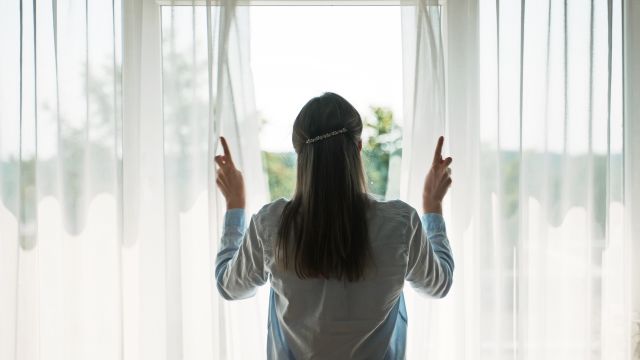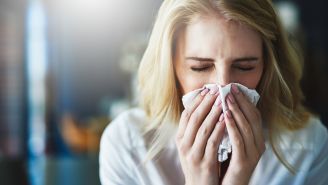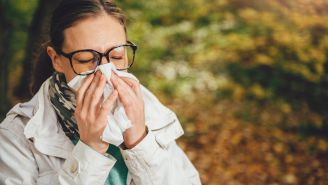There’s nothing like the warm, spring weather to make you want to step outside—but there’s also nothing like nasty spring pollen allergies to make you want to turn around and go right back in. If you suffer from seasonal allergic rhinitis (commonly known as hay fever), you understand the love/hate relationship with the great outdoors.
"Allergies are not just a minor problem," says Mark Schecker, MD, an allergist and immunologist with Grand Strand Medical Center in Myrtle Beach, South Carolina. "A lot of people minimize their allergies. We know from studies that allergies have a significant impact on people's quality of life."
The spring air brings a rush of grass and tree pollen, triggering springtime allergy symptoms, like sneezing, itchy, irritated eyes and runny noses, making day-to-day activities tougher than usual.
And unfortunately, experts predict that pollen seasons are going to start sooner, last longer and produce more pollen as the climate warms—a trend that has already begun. Pollen seasons between 2001 and 2010 started three days earlier and pollen levels increased by 40 percent compared to pollen seasons in the 1990s, according to one 2014 Rutgers University study.
According to Dr. Schecker, allergy symptoms can disrupt your sleep, concentration and productivity at work. Oftentimes, allergies are inherited and although they can begin at any age, they typically affect people by age 30.
But there are ways to ease your springtime allergy symptoms. In fact, Schecker offers some sure-fire spring allergy relief strategies that will help you enjoy the season, sans coughing, itching and sneezing.
1. Stay ahead of symptoms. The Asthma and Allergy Foundation of America (AAFA) recommends beginning a medication routine—even before allergy symptoms start. Medication prevents your body from releasing histamine and other chemicals that cause symptoms. A number of treatment options are available, but Schecker recommends nasal steroid sprays and antihistamines. Most medications are available over the counter, but it's important to consult your healthcare provider about the best regimen for you.
2. Pick the right time to venture outside. Certain times of the day are worse for allergies than others, so check your area’s pollen counts before heading out the door. “Obviously when the pollen counts are higher, your chances of having symptoms are going to be much greater,” says Schecker.
Whenever possible, plan outdoor activities when pollen counts tend to be lowest, typically in the late afternoon. Pollen counts are highest in the early morning and strong winds can blow pollen everywhere, so it may be best to say inside during these times.
3. Keep your windows closed. It can be tempting to open the windows on a breezy day, but this can bring unwanted pollen into your home or car. Instead, turn on air conditioning, which cleans and cools the air. “Air conditioning does a really good job at filtering out pollen,” says Schecker. You can also use an air purifier in your home to clear the air of allergens.
4. Cover up. “Anything that you can do to cover the surfaces or areas where the pollen is going to be entering the body is going to be a help," says Schecker. Hats and sunglasses are simple ways to protect your eyes from irritation and prevent pollen from clinging to your hair, where it can easily be brought back into your home. Also try tying a bandana over your nose while mowing the lawn to prevent allergen particles from entering your airways. For this same reason, it’s best to avoid hanging sheets and towels outside to dry when pollen is bad.
5. Rinse away the pollen. If you bring pollen into your home, on your hair, skin and clothing, symptoms can persist long after you've stepped inside. After spending time outdoors, the American Academy of Allergy Asthma and Immunology (AAAAI) recommends taking a shower, shampooing your hair and changing clothes whenever possible.
6. Get help for persistent symptoms. Feel like you’ve tried everything and still can't get relief? One thing Schecker doesn’t recommend is giving up. If physician-approved medication isn’t making much of a difference, he advises talking to your healthcare provider about allergen immunotherapy, better known as allergy shots. Allergy shots help train your immune system to develop a tolerance to allergens and, over time, ease symptoms. An added bonus: Allergy shots can lower your need for other medications.






